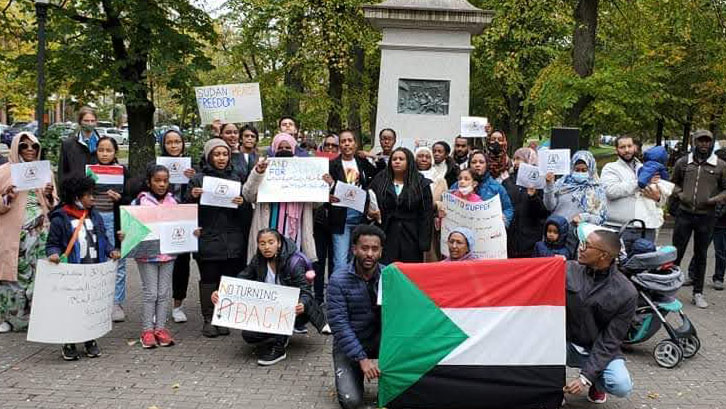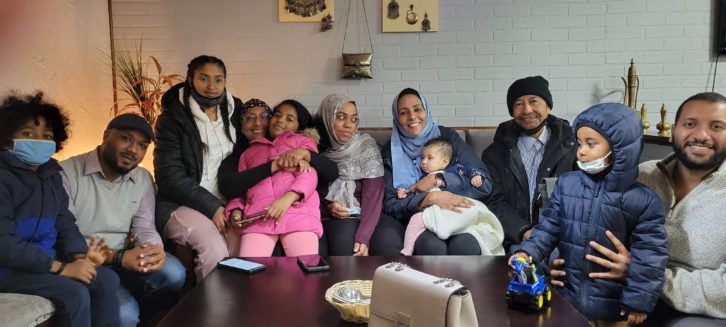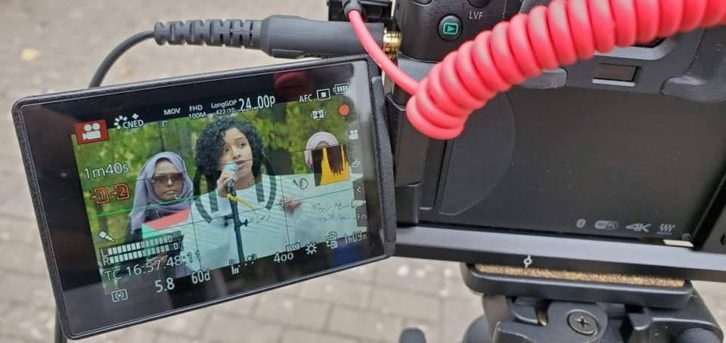Sudanese Canadians in Halifax raise voice to encourage international uproar
People join in protest in Victoria Park to spread awareness about military coup in Sudan

caption
Protest against the coup on Oct. 30 in Victoria Park, HalifaxSudanese Canadians in Halifax are working to raise awareness in their adopted homeland of a violent coup in the country of their origin.
A number of them gathered in Victoria Park in downtown Halifax, five days after the military coup on Oct. 25 in Sudan, to protest the coup and support democracy in Sudan. On Saturday, they will come together again.
‘Marches of millions’ is a worldwide call to collectively protest against the coup. The Halifax group, which consists of university students and working professionals, has been organizing events since the coup began. The protests on Nov. 13 are expected to attract crowds in several cities across Canada and many cities around the world.
Huwaida Medani, one of the organizers of the protests, has been living in Halifax for 16 years. She wants to ensure that people in Canada know about the situation in Sudan. She believes the world is a small village and everything that happens anywhere will have an impact everywhere.
“I am a Sudanese Canadian and I am a part of what is happening in Canada. I want people in Canada to be a part of what is happening in my country as well,” she said.

caption
A group of Sudanese Canadians gather in Aladdin Lounge, Bedford.In April 2019, protesters in Sudan, through a demonstration in front of the military headquarters, forced the military to overthrow president Omar Al-Bashir and his government after nearly 30 years of autocratic rule.
Later, in August 2019, civilians and the military came together to form a 11-member sovereignty council. This council settled on governing the country for 39 months until democratic elections in 2023.
However, on Oct. 25, the military, under the leadership of Gen. Abdel Fattah al-Burhan, dissolved the transitional government, seized power and declared a state of emergency in the country.
Khalid Medani, chair of the African studies program at McGill University in Montreal, believes that the stronger a civil society is, the lesser are the chances of the military to wage a coup.
“Sudanese people refused to acknowledge the military’s legitimacy, and even though they (the military) tried to do it through more peaceful means to take over power, at the end they decided they did not have an option but to retain power through forced means,” he said.
For Medani, the ongoing unrest across Sudan are not just normal protests.
“It’s a protest that encompasses literally all of the country in Sudan which has 40 million people. Everyone is involved in this civil disobedience,” he said.
With the airports shut and an internet blockade in place, families in Halifax are finding it difficult to reach their relatives in Sudan. This includes Huwaida Medani’s brother-in-law Khalid Omar, who was detained by the military on Nov. 1. No one from his family has heard from him since.
“We are hearing all kinds of things like he lost one of his eyes, he couldn’t walk again. We don’t know what happened to him, but definitely, he was tortured along with so many other people,” she said.
According to the United Nations, Sudanese military and security forces have killed at least 13 people and left more than 300 injured in 10 days of the coup.
Lina Hamid, another organizer of the protests in Halifax, believes that a lack of communication has led to inaccurate numbers.
“We do not know the number of casualties and even more people have just gone missing,” she said.

caption
Lina Hamid, an organizer, speaking at a protest in Halifax in October.Hamid, who is on maternity leave with a six-month-old child, agreed that it has been a stressful time but said that their efforts to organize protests are trivial when compared to the larger cause.
“This is nothing compared to what our brothers and sisters are going through in Sudan. So, we need to get over these hurdles to be able to make sure their voices are heard. So we just fight through it,” she said.
About the author

Shlok Talati
Based in Toronto, Shlok Talati is a 2023 CBC News Donaldson Scholar with experience in radio and digital. He holds a master of journalism from...

H
Huwaida Medani